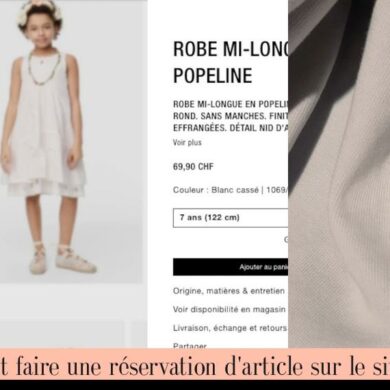Did Zara Apologize to Palestine? Unpacking the Controversy
In the fast-paced world of fashion, trends come and go, but sometimes, a brand’s actions can leave a lasting impact. Zara, the Spanish retail giant known for its affordable and trendy clothing, found itself at the center of a storm of controversy in late 2023. An ad campaign, launched with much fanfare, quickly sparked outrage among pro-Palestinian activists, prompting calls for a boycott and forcing the brand to issue a public apology. This incident, which quickly went viral, brought to light the complexities of cultural sensitivity in the fashion industry and the power of social media in shaping public perception.
So, what exactly did Zara apologize for? The controversy stemmed from a series of images used in the campaign that many online users perceived as insensitive and exploitative. The images, featuring models and mannequins, were criticized for bearing striking resemblances to scenes of devastation and suffering from the ongoing conflict between Israel and Gaza. The juxtaposition of fashion and tragedy, critics argued, was deeply offensive and disrespectful to the victims of the conflict.
The backlash was swift and widespread. Social media platforms were flooded with angry posts and comments, highlighting the perceived insensitivity of the campaign. Pro-Palestinian activists organized calls for a boycott, urging consumers to shun the brand until it addressed the controversy. The outcry reached the UK’s advertising watchdog, which also received complaints about the campaign.
Faced with mounting pressure, Zara responded by issuing a public apology. The brand expressed “regret” over a “misunderstanding” related to the campaign and removed all images from its website and social media platforms. Zara also clarified that the campaign was not intended to evoke images from the Israel-Gaza conflict and that it was deeply sorry for any offense caused.
While Zara’s apology was welcomed by some, others remained unconvinced. Critics argued that the apology was insufficient and that the brand needed to take further steps to address the controversy. Some pointed out that the apology lacked specifics and failed to acknowledge the pain and suffering caused by the campaign. Others called for the brand to donate a portion of its profits to Palestinian humanitarian organizations as a gesture of solidarity.
- Zara s’est excusé publiquement pour une campagne publicitaire controversée qui a provoqué l’indignation des militants pro-palestiniens.
- La controverse a éclaté en raison d’images jugées insensibles et exploitatives, rappelant des scènes de souffrance du conflit entre Israël et Gaza.
- La réaction négative a conduit à des appels au boycott, forçant Zara à retirer les images incriminées et à présenter des excuses publiques.
- Certains ont trouvé l’excuse de Zara insuffisante, soulignant le besoin de mesures supplémentaires pour traiter la controverse de manière plus significative.
- Des critiques ont également demandé à la marque de faire un don d’une partie de ses bénéfices aux Palestiniens pour compenser les dommages causés par la campagne.
The Power of Social Media and the Importance of Cultural Sensitivity
The Zara controversy serves as a stark reminder of the power of social media in shaping public perception. In today’s interconnected world, brands need to be mindful of their actions and the potential impact they can have on different communities. Social media platforms provide a powerful platform for individuals to voice their concerns and hold brands accountable for their actions.
The incident also underscores the importance of cultural sensitivity in the fashion industry. Fashion, often seen as a realm of creativity and self-expression, can be a powerful tool for promoting understanding and empathy. However, it can also be used to perpetuate harmful stereotypes and reinforce existing inequalities. It is crucial for brands to be mindful of their social responsibility and to ensure that their campaigns are inclusive and respectful of all cultures and communities.
The controversy surrounding Zara’s ad campaign highlights the need for brands to engage in thoughtful and ethical decision-making. By prioritizing cultural sensitivity and actively seeking to understand the perspectives of different communities, brands can navigate the complexities of the global marketplace and build trust with their customers.
The Zara controversy also raises important questions about the role of brands in addressing social and political issues. While some argue that brands should focus on their core business and avoid taking a stand on controversial topics, others maintain that brands have a responsibility to use their platform to promote social justice and equality. The debate about the role of brands in addressing social issues is likely to continue, but the Zara controversy serves as a reminder that brands can no longer afford to remain silent on important issues.
Zara’s Response and the Future of Brand Activism
Zara’s apology, while acknowledging a “misunderstanding,” fell short of a genuine apology for the pain and distress caused by the campaign. The brand’s response was viewed by many as an attempt to appease the public outcry without taking full responsibility for its actions. The use of the term “misunderstanding” was interpreted as a way to deflect blame and avoid addressing the deeper issues of cultural sensitivity and ethical responsibility.
The Zara controversy serves as a cautionary tale for brands seeking to engage in social activism. While it is commendable for brands to use their platform to promote social justice and equality, they must do so with sensitivity and authenticity. A genuine commitment to social responsibility requires more than simply issuing a statement or donating to a cause. It requires a deep understanding of the issues, a willingness to listen to diverse perspectives, and a commitment to long-term change.
The future of brand activism is likely to be shaped by the increasing power of social media and the growing awareness of social justice issues. Brands that embrace a genuine commitment to social responsibility and engage in meaningful dialogue with their stakeholders are likely to thrive in this new landscape. Those that fail to adapt and prioritize ethical conduct risk facing backlash from consumers and losing their credibility.
The Zara controversy serves as a reminder that the fashion industry is not immune to the forces of social change. As consumers become increasingly aware of the social and environmental impact of their purchases, brands will need to prioritize ethical practices and demonstrate a genuine commitment to sustainability and inclusivity. The future of fashion will be shaped by brands that embrace these values and use their platform to create a more just and equitable world.
Qu’est-ce qui a poussé Zara à présenter des excuses?
Zara a présenté des excuses suite à une controverse entourant une campagne publicitaire jugée insensible et exploitative par de nombreux utilisateurs en ligne.
Quelle était la nature de la controverse entourant la campagne publicitaire de Zara?
La controverse a émergé des images utilisées dans la campagne, qui ont été critiquées pour leur ressemblance frappante avec des scènes de dévastation et de souffrance du conflit entre Israël et Gaza.
Comment Zara a-t-il réagi à la pression croissante liée à la controverse?
Face à la pression croissante, Zara a répondu en présentant des excuses publiques, en exprimant des regrets pour un “malentendu” lié à la campagne, et en retirant toutes les images de ses plateformes en ligne.
Quelle a été la réaction des critiques à l’égard des excuses présentées par Zara?
Les critiques ont jugé les excuses insuffisantes, appelant la marque à prendre des mesures supplémentaires pour adresser la controverse, notamment en faisant des dons à des organisations humanitaires palestiniennes.






